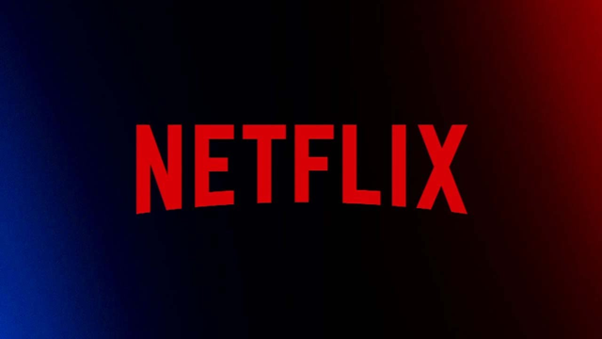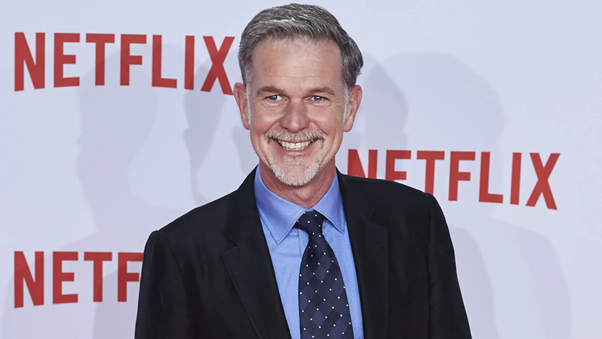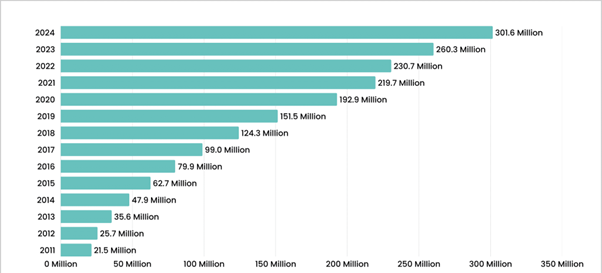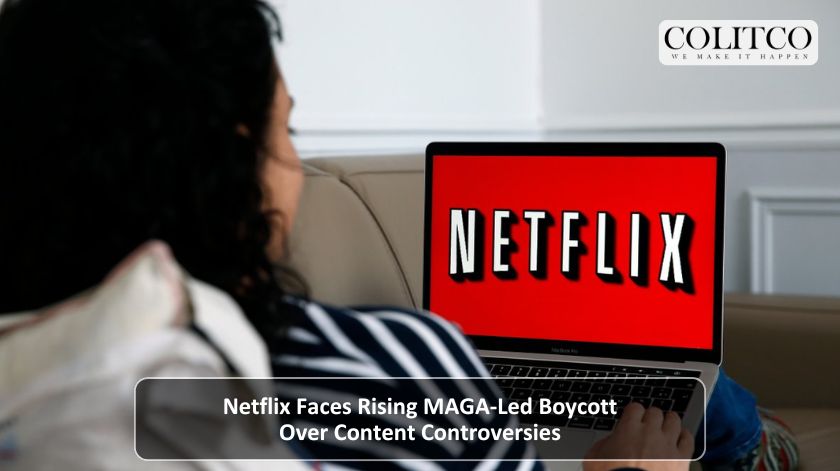Netflix is in the midst of a growing political backlash that is being fueled by the MAGA movement. This was a response to conservative critics attacking the streaming giant as promoting a progressive agenda in its content. This has led to an overall movement by MAGA supporters to boycott Netflix by cancelling their subscriptions. The boycott will strike at the earnings and market shares of Netflix in the target demographics. These strains highlight larger cultural conflicts that are being enacted in the entertainment sector.
Conservative Voices Condemn Netflix Programming
High-profile conservative voices openly denounce Netflix for what they describe as ideological bias. Former President Donald Trump criticised the company for “promoting radical left propaganda.” They contend that Netflix’s offerings depart from traditional American values, urging a cultural pushback. Other conservative commentators echo concerns that the service increasingly prioritises progressive social narratives over neutral entertainment. This collective criticism fuels momentum for a subscription withdrawal campaign targeting the platform.

Netflix faces MAGA-led boycott
Controversial Titles Spark Discontent
Some Netflix content has been the target of a lightning rod. Documentaries that talk about systemic racism and police reform are severely criticised by MAGA supporters. Programmes drawing attention to LGBTQ+ matters also receive a lot of backlash. Critics claim that such productions only serve to polarise the people instead of making them inclusive. The text then becomes symbolic of the culture wars, requiring the consumers to respond by fighting against them. These audiences emphasise that the programming decisions Netflix makes are driving away elements of the audience base.

Netflix founder, Reed Hastings
Subscriber Base and Market Influence
Netflix boasts more than 230 million subscribers worldwide, including a substantial American segment. The US remains one of Netflix’s most important markets for growth and revenue. Industry insiders observe some subscriber unrest linked directly to dissatisfaction with content themes. Early data hints at possible signs of slowing subscriber growth in politically conservative districts. The boycott, if sustained, risks damaging Netflix’s expansion and earnings prospects in these areas.
Company Position on Content and Creativity
Netflix upholds a commitment to creative freedom and diverse storytelling perspectives. Executives assert the importance of representing multiple viewpoints, reflecting societal complexity. They reject allegations of bias, stating programming decisions are guided by entertainment and social relevance. Netflix does not indicate willingness to alter content due to external political pressures. The company continues its strategy to push boundaries and experiment with challenging topics.
Economic and Competitive Impacts
The streaming market shows intensifying competition with entrants aggressively targeting Netflix’s audience share. Given this environment, subscriber retention becomes essential for financial stability. Any sustained boycott risks accelerating churn, reducing revenue visibility. Advertising partners watch developments given potential changes in audience composition. Experts warn that political boycotts could accelerate a realignment within the digital entertainment landscape.

Netflix’s subscriber count over the years
Social Media’s Role in Amplification
Social media platforms act as critical channels spreading boycott messages rapidly. Hashtags and coordinated campaigns spur cancellation encouragement among MAGA groups. Influencers and grassroots supporters mobilise followers to exit Netflix en masse. These viral strategies amplify pressure on Netflix beyond traditional media outlets. The digital ecosystem magnifies cultural conflicts, contributing to sustained public focus on the controversy.
Buh bye #Netflix #cancelNetflix #FAFO @netflix @reedhastings #reedhastings you should have kept your politics to yourself. Now you can GFYH with all the rest of “em!!! I guess #crackerbarrel taught you nothing? American patriots have had enough of your #wokeness $$$$$$ pic.twitter.com/32o1qdNrEE
— LiHotShots (@LiHotShots) September 1, 2025
The Culture War Context
The boycott of Netflix is an example of the intensifying culture wars defining consumer behaviour. Streaming services are now ideological battlegrounds, where the lines in society are being fought visually. Media firms are facing growing criticism about how they can strike a balance between content diversity and the sensitivities of audiences. Such an environment compels platforms to tread heavily into politicised territory. Their decisions have an echo that goes beyond entertainment to brand perception and loyalty.
Potential Shifts in Industry Strategy
The effects of the boycott could prompt streaming services to reconsider political sensitivity in programming. Companies may adopt changes to mitigate subscriber losses tied to ideological disputes. Some platforms might increase content targeting specific demographic groups to stabilise viewership. Others could expand emphasis on neutral entertainment to broaden appeal. The incident signals a turning point where content strategy integrates political considerations more explicitly.
Global Implications for Streaming Platforms
The case of Netflix represents the problems of international streaming companies working in different markets. Local material viewed as politically polarising in the domestic market can have an impact on global subscription patterns. To retain international subscribers, platforms need to be culturally relevant and politically neutral at the same time. The need to respond to or evade controversial issues increases as political activism transforms media consumption. This relationship highlights more global geopolitical impacts on digital entertainment.
Also Read: Inside Google’s “Nano Banana”: Gemini’s New AI Image Editor Takes Creativity to the Next Level
Economic Scale of the Streaming Market
Globally, Netflix holds a dominant market share with revenues exceeding US$40 billion annually. US customers represent a critical portion of this revenue stream. Sustained subscription losses in the US could impact overall profitability and shareholder returns. The move towards politically motivated cancellations raises new economic risks for content producers. Industry analysts highlight the importance of adaptive business models amid changing audience preferences.
Engagement Metrics and Viewer Preferences
Consumer data indicates shifting viewer preferences that may correlate with political orientation. Surveys reveal a segment of Netflix users express frustration with perceived ideological slants. Engagement patterns show reduced viewing time for content deemed politically charged by certain groups. These metrics suggest the boycott could translate into measurable market behaviour changes. Streaming companies increasingly rely on analytics to navigate audience fragmentation.
Conclusion: Netflix at Crossroads
Netflix is in a complicated situation where it has to strike a balance between different storytelling and politics. The MAGA boycott as a phenomenon shows that the relationship between content innovation and fragmentation of the audience is still strained. The reaction and the influence of the boycott on the company will define Netflix in a highly charged cultural environment. Streaming companies will need to develop a strategy that balances creative interests and demographic sensibilities. The case provides an important case study of how politics are becoming more and more interwoven with media consumption.
The next few months will see whether Netflix will be able to reduce subscriber losses and continue to grow. How the company manages to solve this backlash will possibly re-categorise the market position of this company in the United States and other places. In the meantime, Netflix finds itself at a crossroads as the entertainment industry becomes increasingly politicised and influenced by culture. Both subscribers and observers are interested in the results of this developing boycott phenomenon.





